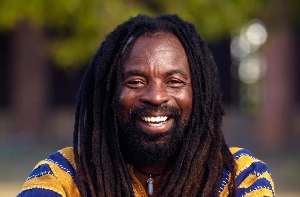African economies ought to offer a better business climate, transparency in the rule of law, and develop specific country strategies and plans to benefit more from the United States’ signature trade initiative, the Africa Growth and Opportunity Act (AGOA).
“Ghana and other African countries with more time and more development will become better, and be able to take the steps required in a coordinated way to build up the private and government sectors’ capacities to take advantage of access to the US market,” Senior Advisor at the Centre for Study of the United States Presidency and Congress, Dr. Sherman Katz, told B&FT in an interview in Accra.
Dr. Katz explained that countries must make an effort to have skilled personnel, infrastructure, more capital and a single window for trade facilitation, which will enable government ministries coordinate their activities for viable economic growth.
He indicated that simplified customs, skilled personnel and good road networks, as well as getting through a one-stop shop port – rather than through 16 destinations – will deal with the bottlenecks in trade along borders.
“These are things Washington is suggesting to Ghana to consider more carefully, especially when AGOA is about to be renewed in the year 2015 immediately after the scheduled date for expiration.”
AGOA was signed into law on May 18, 2000 as the Trade and Development Act of 2000. The Act offers tangible incentives for African countries to continue their efforts to open their economies and build free markets.
For more than a dozen years, AGOA has been the U.S. government’s signature trade initiative with sub-Saharan Africa, helping diversify exports, create jobs, reduce barriers to trade, and expand economic opportunities for the region’s population.
Dr. Katz revealed that the US has taken special interest to renew the AGOA for another 10 years as a result of China and the EU’s increasing market presence in Africa.
“The US is giving an open market, but it is ultimately up to Ghana to take the steps and other African countries to allow and help businesses to take advantage of that,” he said.
Under the 2015 AGOA renewal process, the eligibility criteria will be made less stressful and the initiative will focus on improving the business environment by encouraging capacity building for efficiency and effectiveness.
He pointed out that the business community in the US is in the process of organising recommendations for President Barack Obama in his second term, disclosing that one of such suggestions will see to the setting up of an infrastructure fund for agro-business.
Touching on the under-utilisation of the opportunities, Dr. Katz said it all depends on Congress. “If Congress detects that a country is under-utilising its market opportunities then there is the tendency of giving such privileges to another country to make use of".
With more than 6,000 products receiving duty-free treatment when exported to the United States, AGOA has helped generate jobs through trade and investment opportunities during its short lifespan.
AGOA provides a framework for improved access to US credit and technical expertise, and establishes a high-level dialogue on trade and investment in the form of an annual US-sub-Saharan Africa Trade and Economic Forum.
It is an integral component of the United States’ overall trade with sub-Saharan Africa, increasing two-way trade between the two regions to over US$95billion in 2011.
It also generated a US$13billion increase in two-way trade between 2010 and 2011, and a total of US$716.1 billion since 2001.
Business News of Tuesday, 5 March 2013
Source: B&FT
















